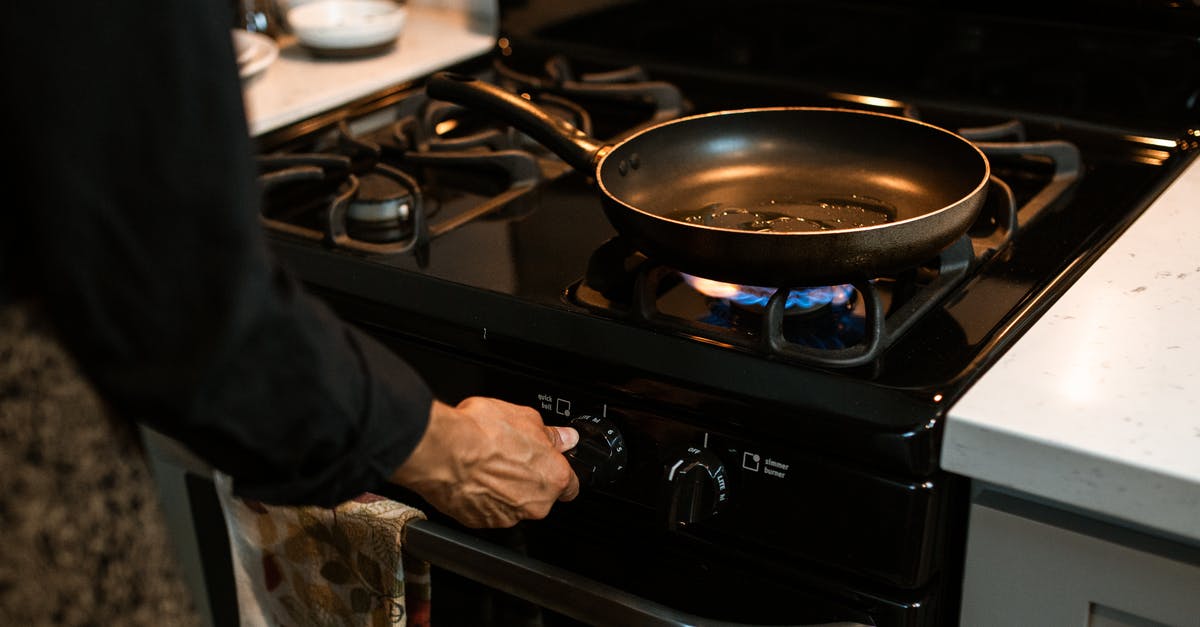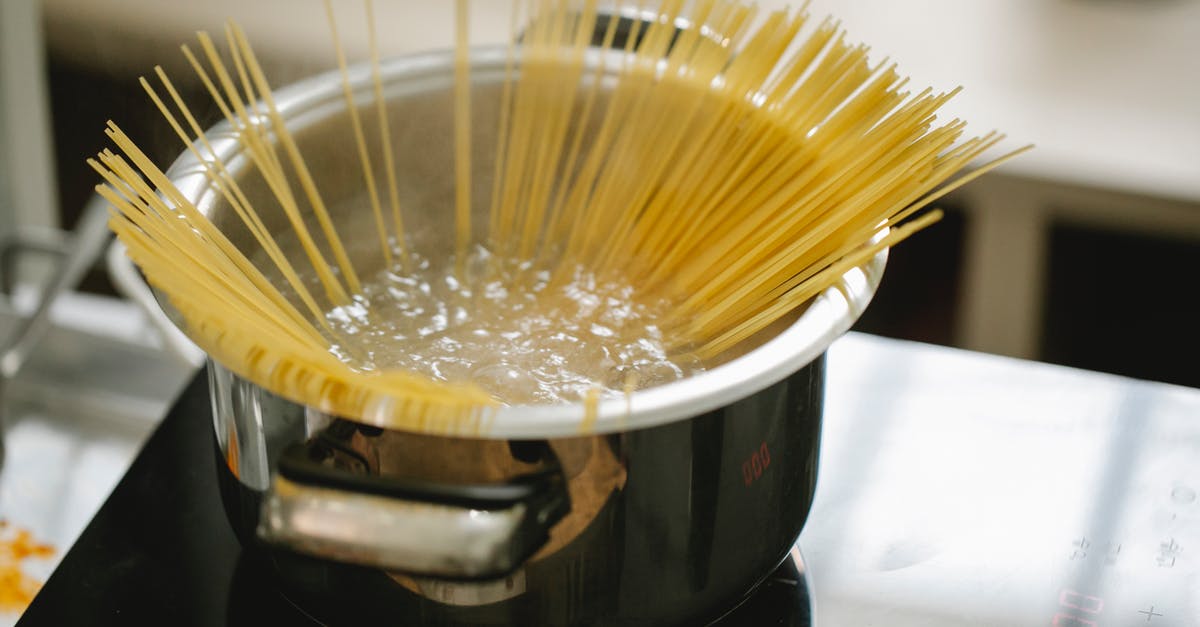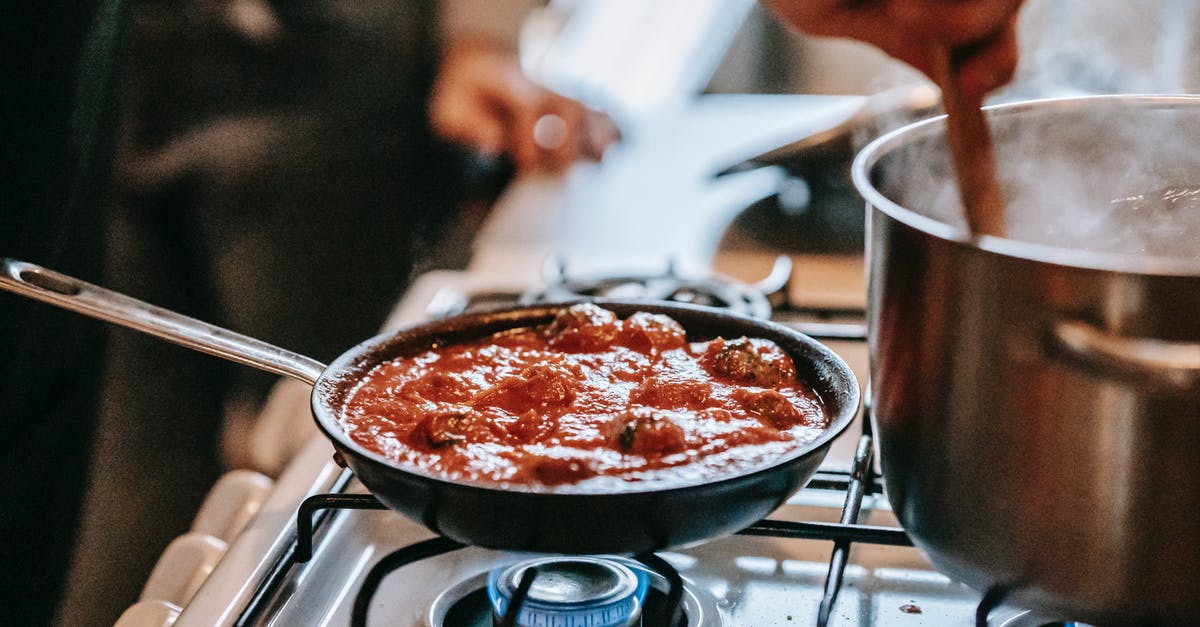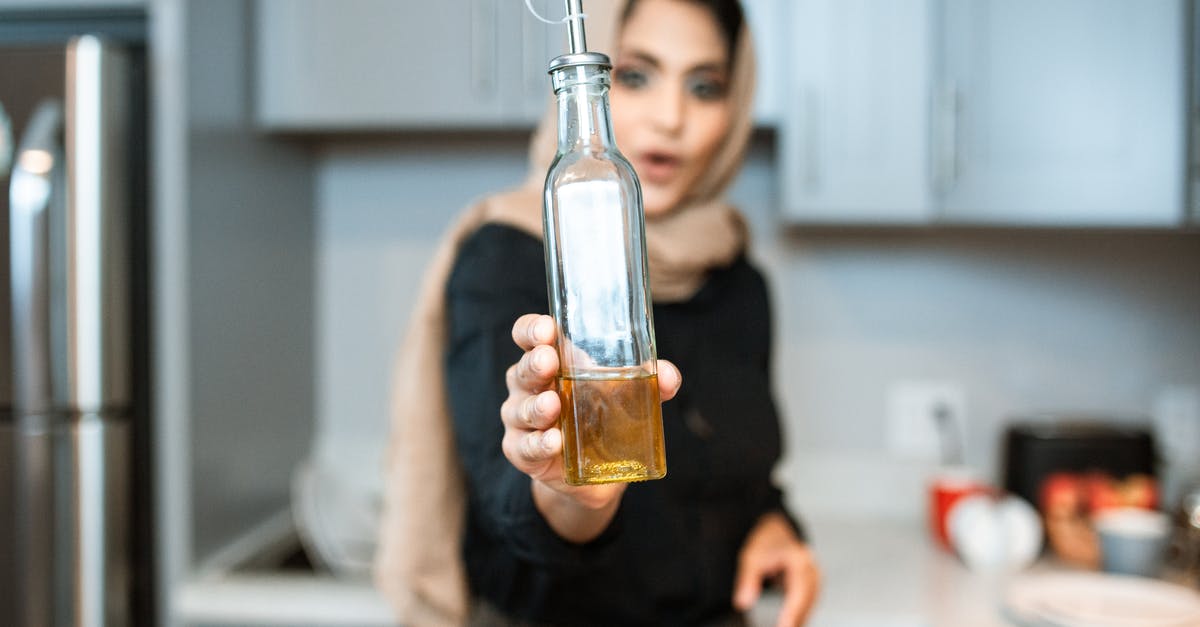Will adding water to a grill pan to use the remains of previously cooked food (deglazing), damage it?

Situation: I have been using this technique for some time, and I personally think it's great. But I have been told it ruins the grill pan due to the difference in temperature.
Example:
This is my (anti-stick) grill pan. At least in my country, when we say 'grill cooking' it means with a small amount of oil, just spreading it over the surface with a silicone brush. It's not 'dirty' or always like this. I was still cooking (chicken breast in this case, still a piece left that took longer). I took this picture on purpose for this question.
What I like doing is, after the meat or whatever is done, I add and brush the surface with a little bit of oil and water (usually boiling hot from a kettle). With a silicone spatula I "clean it" to get all the remains and colors/flavours in the liquid, and then I add leftover rice (made in a rice cooker after rinsing it). I might add some soy sauce or oyster sauce as well.
More or less like a mix between Mediterranean and Asian methodologies. But I have been told a few times: "You will damage the grill by adding water.". One of the main arguments is that the difference in temperature can ruin the iron/material. As I mentioned, the water is boiling hot (approx. 100°C). My findings tell me that temperatures in the pan/grill can get to 250°C.
Will this difference in temperature damage my grill? Does it matter if it's non-stick for this case?
PS: I added the "durability" tag, but I am not sure if that is accurate (maybe "maintenance"?). If I made a mistake, please feel free to edit it!
Best Answer
The answer is: it is likely that you will damage it indeed.
The technique of deglazing comes from iron pans. It can be used on them, or on other kinds of uncoated pans, without any problem. It does come with a tiny risk of the pan suddenly breaking apart, but this is an exception, pans frequently survive daily use across family generations without breaking.
But you say that your pan is non-stick. From that information and the looks of it, as well the information that the previous one was "spoiled", it is most likely teflon-covered. Teflon is a very sensitive material, and easy to damage.
There are two mechanisms which can (but do not have to) happen to damage your pan here. The first is exactly what you mentioned: temperature difference. The thermal shock of deglazing leads to a sudden contraction of the pan material, and it is not possible to make a coated pan in which the Teflon and the metal beneath it contract with the exact same speed. This creates stress on the border between the coating and the pan body, which is already a rather weak border, because the teflon simply doesn't like sticking to the metal. With time, the repeated stress on that border can certainly damage the bond between coating and pan.
The second mechanism is a bit more indirect: temperature. To do a proper deglazing, you need a hot pan, else you end up with an unappetizing greasy soup instead of a nice fond. On the other hand, teflon coatings are not suitable for using at high temperatures, they start to degrade at around 200 C. So if you want to do deglazing, you will have to damage your pan by heating it up.
The good news is that, in the second mechanism, there is no double damage. So, if you are already overheating the pan during cooking, then you are not doing extra heat damage by deglazing, there is only the damage caused by the differential contraction.
In conclusion, if you want to do deglazing, you might consider learning to cook on other types of pan. They frequently come with a learning curve and reduction in comfort, but give you better food quality and don't need to be replaced regularly.
Pictures about "Will adding water to a grill pan to use the remains of previously cooked food (deglazing), damage it?"



Quick Answer about "Will adding water to a grill pan to use the remains of previously cooked food (deglazing), damage it?"
You are not damaging the pan at all. However, in a cast iron or carbon steel pan one is often trying to build up a seasoning layer, essentially making it non-stick. Continuous deglazing will interfere with that process.Can you deglaze in cast iron?
The rest of us mortals should avoid overly acidic foods in our cast irons. On the same token, it's best not to deglaze a cast iron with vinegar or wine. Not only will the acidity of the liquid potentially react with exposed metal causing damage to the pan, it can impart a metallic taste to the food.Can you deglaze a carbon steel pan with wine?
Avoid using wine and vinegar to deglaze carbon steel and cast iron: Wine, vinegar, and acidic liquids in general are not good choices of cooking liquid for deglazing a carbon steel or cast iron skillet.How do you deglaze a skillet?
Scrape the bottom of your pan with a spoon to get all of those tasty bits up. Let the liquid you added reduce some, which will concentrate its flavor (and cook off any alcohol if you opted for booze). And there you have it: You've deglazed.Grill Pans: 5 Fast Facts
More answers regarding will adding water to a grill pan to use the remains of previously cooked food (deglazing), damage it?
Answer 2
That looks like a 'teflon'-coated aluminium pan to me.
The trick for deglazing without damage is just to let the heat off the pan a couple of minutes before adding liquid, so you don't get the extreme heat-shock; then bring it all back to the boil together.
'Teflon' doesn't last forever anyway, but I've not known this method to shorten a pan's life - there may even be an indication that doing this with wine will actually slightly mitigate the build-up seasoning/glaze that eventually makes non-stick pans sticky.
Answer 3
You are not damaging the pan at all. However, in a cast iron or carbon steel pan one is often trying to build up a seasoning layer, essentially making it non-stick. Continuous deglazing will interfere with that process. I have a couple of carbon steel pans that I don't introduce any liquid to because I don't want to lose the layers of seasoning I've worked to develop. My cast iron is many years older, so that one occasionally sees liquids. Your pan looks like it is enameled, that means you have to worry even less, as enameled pans are not really intended to take on a layer of seasoning. So, if your grill pan is already heavily seasoned, or if you don't really worry about the seasoning for that particular pan (or if it is enameled)....deglaze-away...worry-free.
Sources: Stack Exchange - This article follows the attribution requirements of Stack Exchange and is licensed under CC BY-SA 3.0.
Images: RODNAE Productions, Klaus Nielsen, Gary Barnes, RODNAE Productions

